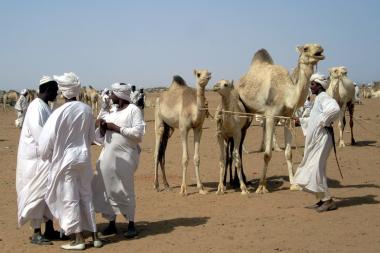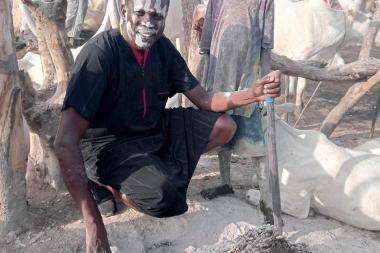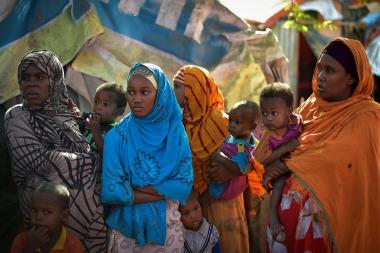Blog
Climate change does not cause land conflict, it exacerbates it
At this year's LANDac Land Conference, SPARC shared evidence from pastoralists in Sudan, South Sudan and Nigeria on how land governance in drylands can create sustainable, gender-inclusive change.
Publisher SPARC
At the annual LANDac Land Governance Conference on July 4th 2025, I had the privilege of chairing a session, “Learning from SPARC research on gender and youth issues in farmer-herder conflicts and pastoral land governance”, and, later, of speaking in the Closing Plenary.
One of LANDac’s themes was land governance in contexts of increased migration and mobility. At Supporting Pastoralism and Agriculture in Recurrent and Protracted Crises (SPARC), we were keen to share insights from our recent research in the climate-fragile and conflict-affected drylands of South Sudan, Sudan, and Nigeria.
“Future resilience rests on the meaningful participation of women and youth”
At our session, SPARC researchers highlighted how conflict and climate change are exacerbating complex underlying social and cultural norms around decision-making over access to, and the ownership and control of, resources, including ongoing gender inequalities in pastoral land governance.
Speaking first, on gender and land governance in Sudan, Hussein M. Sulieman, from the Centre for Remote Sensing and Geographical Information Systems at the University of Gadarif, Sudan, said: “Future resilience requires meaningful participation of women and youth in land governance and peacebuilding.”
This is equally true in South Sudan, where Chol Bak, from Infinity Consultants, South Sudan, drew attention to how, in Gogrial East County, Warrap State, hundreds of young men are dying “annually in cattle raid clashes, girls are exposed to abductions and rape during conflicts and newly wedded women are targeted in revenge killings”. He explained that this level of violence dramatically affects how local agro-pastoralists are able to adapt to the “new norm” of climate-change-linked flooding, which follows a long history of cattle raiding and border disputes.
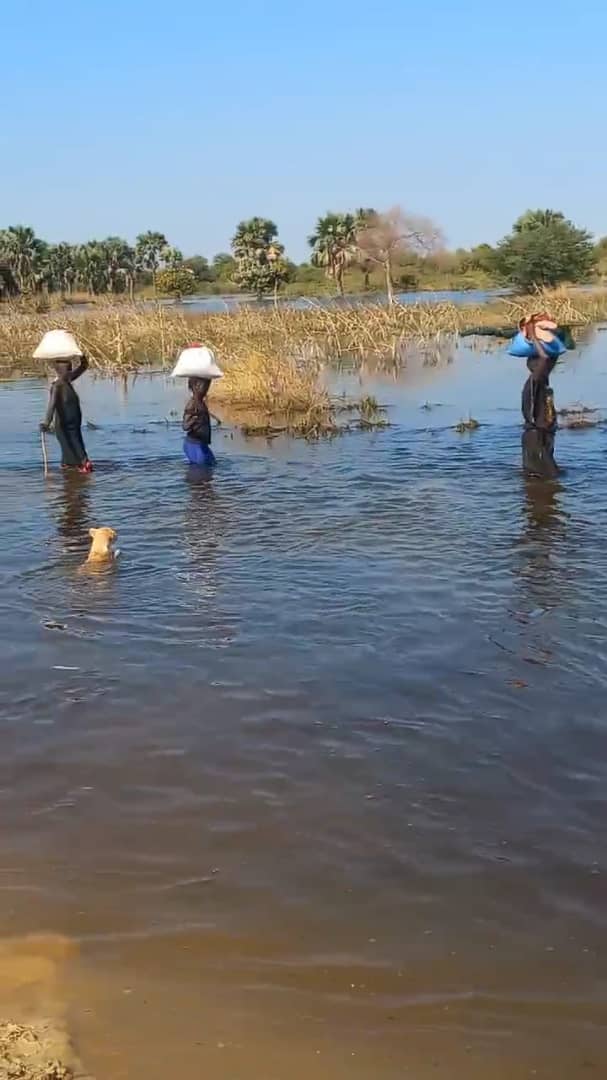
Changing gender roles
As well as impacts on food insecurity, difficulties accessing water, and human population displacement, Gogrial East is also experiencing major changes in gender roles. Older women and young children no longer move to cattle camps during livestock migration; young men are now recruited as guards against cattle raids – instead of grazing animals themselves – and older girls now help to graze calves and treat sick animals.
Pacificah Okemwa, from Kenyatta University (KU), Kenya, led SPARC-IDRC gender and climate resilience research in Jonglei State, South Sudan. She highlighted the importance of addressing the lack of women’s participation in decision-making and leadership, and building the agency of women, men, and vulnerable people to achieve meaningful change. The KU team found very high levels of fragility in Jonglei’s Bor County due to conflict and climate change. This was visible in crop failures, displacement of people and animals, cattle-raiding and destroyed infrastructure.
The differential impacts of fragility on men and women included men losing their lives and livelihoods, women, boys, and girls being abducted, and gender-based violence against women and girls whose vulnerability is culturally and socially driven via prescribed gender roles. Pacificah concluded that climate fragility amplifies underlying gender inequalities in access to, and ownership and control of land and natural resources.
Aishatu Ardo Bashir, from the Fulbe Development and Cultural Organization (FUDECO) and Taraba State University, Nigeria, spoke about the situation of women small-scale dairy farmers in Taraba. She said: “They lack lands of their own and have no designated government grazing reserves or watering points provided for their animals.” This means they face major challenges to their livelihoods with climate change, including low on-farm milk production as crop farmers encroach on grazing reserves and increases in residential housing lead to reduced grazing areas and forest reserves.
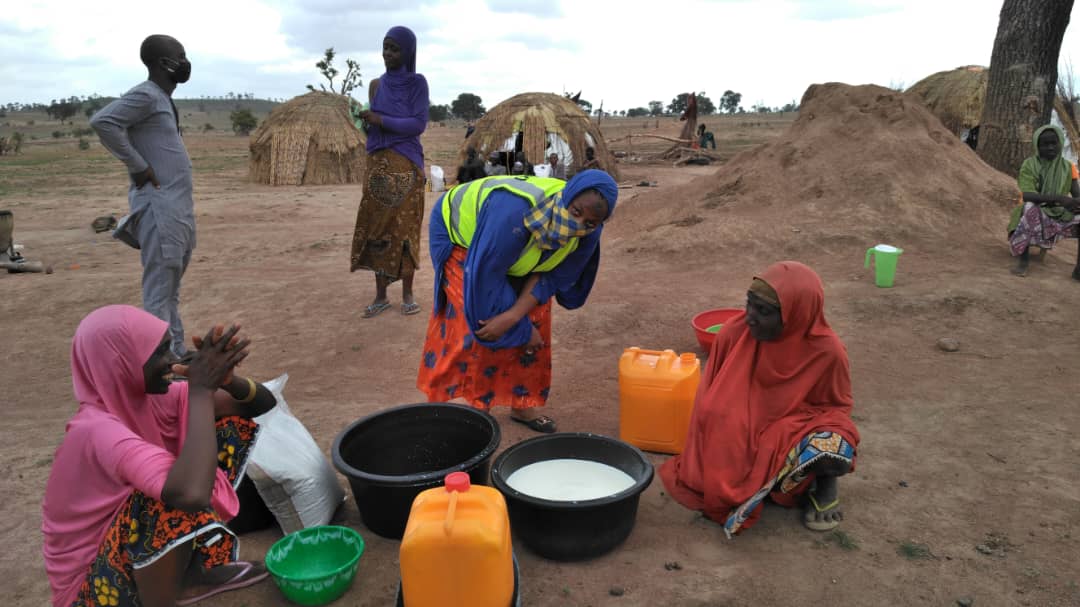
Women’s limited roles in land governance and conflict resolution
These findings aligned with results of Hussein Sulieman’s research in Gadarif State, Sudan. Here, a complex mix of customary and formal tenure systems combine with land-grabbing pressures to fuel land disputes. These land disputes in turn fuel polarisation between different groups, intensifying competition over land and resources, and disproportionately impacting women’s access to resources and gender roles.
Hussein’s research highlighted the limited land rights and restricted role women have in land governance and decision-making over resources, with women’s participation in conflict resolution also low. His findings underscored how traditional social norms restrict women’s participation. This limits women’s ability to influence issues that affect their access to land and resources, despite their active roles in farming and pastoralism. Farmer-herder conflicts and broader land tenure insecurities thus disproportionately affect women’s access to land, mobility, and livelihoods, limiting their economic opportunities and exacerbating their social vulnerability.
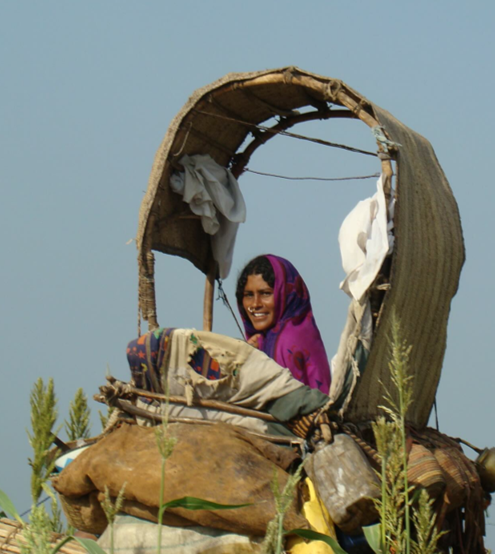
What the evidence tells us
SPARC findings overall show that climate change does not cause land conflict, but it does make it worse, by:
- amplifying the underlying gender inequalities in social and cultural norms around land governance and decision-making over access to, and the ownership and control of, resources; and
- exacerbating underlying political economy factors and tensions that fuel existing conflict and disputes over land.
In the regions SPARC covers, climate change increases fragility and vulnerability, especially for the already most vulnerable in communities, because of these political economy and gender normative links.
Barbara Codispoti of Oxfam Novib, an expert on gender and land in the Sahel, joined the panel as an external discussant. She emphasised that the impact of non-traditional governance elements on land administration in areas affected by conflict and climate can be critical, especially around social norms. This makes it essential to understand land governance in the context of protracted crises in pastoral settings.
She added that transitional/temporary mechanisms have potential to help resolve land disputes when people and livestock are on the move, as traditional land administration processes might not apply. Barbara also noted that protracted crises linked to conflict and climate change “add mobility to mobility,” as pastoralists are already mobile, but these patterns get reshaped when crises cause displacement.
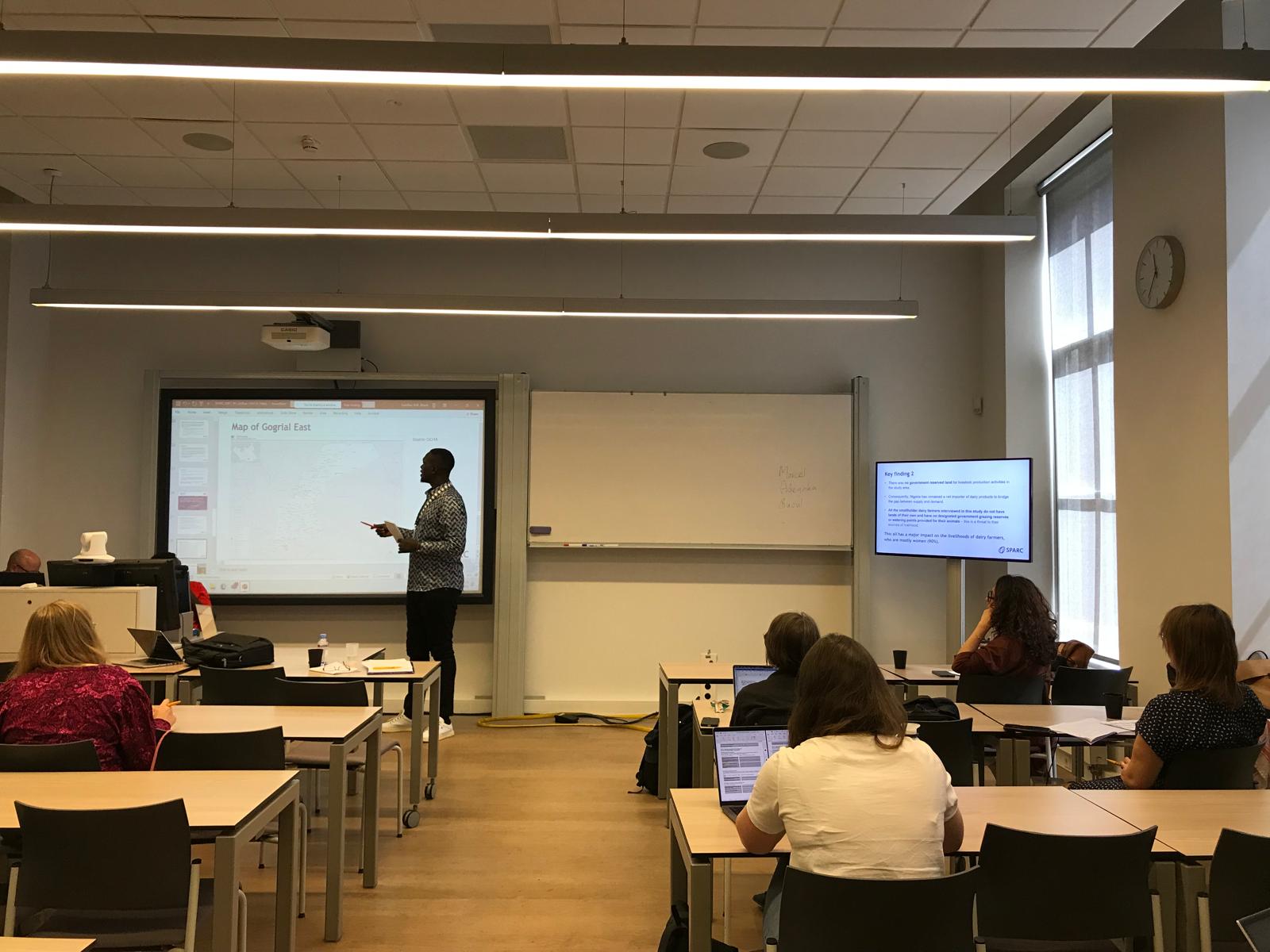
Closing reflections
My three takeaways from the conference that I shared in the Closing Plenary are:
- Land is always and everywhere politicised. The perception that land conflicts are driven by climate change is wrong. Instead, climate change exacerbates underlying political issues of injustice and discrimination in land governance. This makes supporting national level land governance solutions via national partners and organisations crucial.
- Our task of strengthening land governance is huge. Because of this, inclusion has to be central from the start. It is not easy to bring attention to gender equity and social inclusion into land governance reforms later down the line.
- Tactics are key. Too often, we don’t speak the same emotional language about land. What seems obvious to me might not resonate with you, or with someone else whose worldview is different to both of us. Research is an opportunity to build evidence for action, as SPARC has done. We need to keep being strategic in what we research but tactical in how we do that research, how we frame our questions, methods, and findings, and in working out who our audience is and who our potential champions for change might be.
This article was also published on the Land Portal. Find out more about our event in this session summary here.
